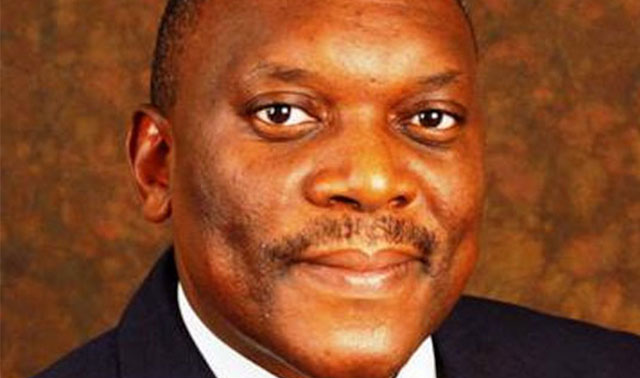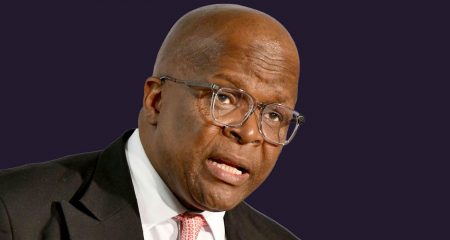 On 21 May, South Africans will get to hear telecommunications & postal services minister Siyabonga Cwele deliver his second budget vote speech. It will be a report card for a minister who has been in the role for precisely a year.
On 21 May, South Africans will get to hear telecommunications & postal services minister Siyabonga Cwele deliver his second budget vote speech. It will be a report card for a minister who has been in the role for precisely a year.
He is unlikely to get a passing grade given that many of the commitments he made have not been met.
Indeed, Cwele’s inability to get to grips with the challenges of the ICT sector as well as the political dynamics in operation have seen the rug pulled from under him.
Last year, the minister made a commitment on digital migration during his budget vote speech, saying the June 2015 deadline for South Africa to complete the project “looms before us and we dare not let out people down”.
He undertook to finalise the broadcasting digital migration policy at the end of July 2014 and announce the dual-illumination period switch-on date, when commencement of digital broadcasts would begin, within three months.
Of course, communications minister Faith Muthambi and her team pulled that project from under his nose. The project is now inching forward, though the deadline will be missed by a mile.
Another of Cwele’s commitments was the establishment of a cybersecurity hub. The cybersecurity programme has now become the prerogative of state security minister David Mahlobo.
Mahlobo announced a number of initiatives on cybersecurity in his budget vote speech on Tuesday, making it clear to any pretenders to the throne, such as Cwele’s department and the Film and Publication Board, that cybersecurity is an intelligence matter first and foremost.
Cwele also pledged to do something about South Africa slipping down international rankings in respect of the country’s global competitiveness, particularly in information and communications technology.
Last month’s Global Information Technology Report by the World Economic Forum showed South Africa slipping five places to 75th, falling to third in Africa, behind Mauritius (45th) and Seychelles (74th). Kenya moved up six places to 86th.
On the international front, Cwele promised to “remain active in the International Telecommunication Union and the Universal Postal Union”. In a speech delivered in Zimbabwe in July 2014, he announced South Africa’s candidature for a seat on the ITU council. But at the ITU plenipotentiary conference in October 2014, South Africa was kicked off the council, for the first time since 2006. Thirteen other African countries, including Rwanda, Senegal, Ghana and Uganda, were elected to the ITU’s highest decision-making body.
Cwele also undertook to remain active in the Universal Postal Union, but was noticeably absent from the union’s world strategy conference last month.
The current state of affairs at telecoms department may provide clues as to why he wasn’t there. South Africa’s most senior representative at the Universal Postal Union, deputy director-general Gift Buthelezi, was fired by SMS by director-general Rosey Sekese two months ago. Cwele “sought legal advice” and has now informed Buthelezi that he can’t act to have him reinstated.
In his last budget vote speech, the minister directed the Post Office “to develop an overall turnaround strategy which will be finalised by the end of November 2014”.
By then the Post Office was at the tail-end of a three-month long strike that led to a public outcry and clients abandoning the institution en masse.

Cwele appointed an administrator, Simo Lushaba, who this week presented a turnaround strategy to parliament’s portfolio committee. He seems to have a plan, though, as always, the devil lies in its implementation.
Cwele, like many of ministers before him, promised registration of the Postbank with the Reserve Bank would be completed, this time by December 2014. This hasn’t happened, to the Post Office’s detriment.
Another promise was to ensure the roll-out of broadband and finalisation of the business case for “funding to connect 580 clinics, 4 444 schools, 182 police stations and 572 other government offices”. Not much has been heard about this since, though the controversial decision to make Telkom the lead government agency in the roll-out of broadband may bear some fruit in this regard.
Cwele also said he would ensure that the State IT Agency (Sita) would oversee the deployment of a number of government services online.
The appointment of Setumo Mohapi as CEO of Sita has been widely welcomed, though it’s understood he was unhappy about giving up the helm at Sentech.
The ICT policy review, meanwhile, has been finalised, though Cwele missed his own deadline. In December last year, he said the white paper would be finalised by March 2015. Cwele was given the policy review panel’s final report last month. No one actually knows what that means as the process was meant to lead to a white paper. Cwele’s predecessor Yunus Carrim said a year ago that the white paper would be finalised in the second half of 2014.
The industry will be hoping 2015’s forthcoming promises will lead to more concrete action. — © 2015 NewsCentral Media




